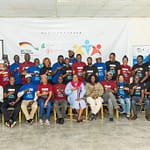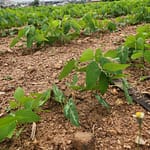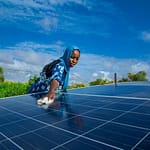In a bid to rectify past mistakes and ensure a stronger focus on human rights and climate justice, African leaders are gearing up for the much-anticipated Conference of the Parties (COP28) to the UNFCCC in Dubai. This follows the inaugural Africa Climate Summit where the Nairobi Declaration on Climate Change and Call to Action fell short, according to Amnesty International.
Amnesty International’s Regional Director for East and Southern Africa, Tigere Chagutah, emphasized the critical need for effective strategies in combating climate change: “While the Nairobi Declaration is a unified voice aimed at addressing Africa’s climate challenges, some of its proposals do not effectively combat the emissions that cause climate change or provide adequate support to those negatively affected by global warming.”
Read also: African Experts Call for New Paradigm to Unlock Methane Action Financing
One of the focal points of the Nairobi Declaration is the call for global financial reforms and the swift operationalization of the Loss and Damage Fund agreed at COP27. This fund aims to assist countries in recovering from climate-related disasters, such as droughts, cyclones, and floods.
![Africa climate summit adopts 'Nairobi declaration' as it concludes.[Image/File]](https://mlmkoxknobqn.i.optimole.com/w:1024/h:768/q:mauto/ig:avif/https://lidanetwork.org/wp-content/uploads/2023/11/africa-summit-1200x900-1.jpg)
Samira Daoud, Amnesty International’s Regional Director for West and Central Africa, pointed out the alarming rise in human rights violations due to climate-induced disasters on the continent: “The increasing intensity of droughts and floods, as well as rising sea levels, has led to massive human rights violations on the continent. Despite this, African leaders failed to anchor the Nairobi Declaration firmly on human rights principles to both address and protect human rights as the climate changes.”
Chagutah underscored the importance of ensuring the Loss and Damage Fund places human rights at its core. He stated, “Amnesty International calls on African leaders attending COP28 in Dubai to ensure that the Loss and Damage Fund focuses on protecting human rights. By prioritizing carbon trading, leaders have shifted the burden of reducing CO2 emissions to African countries, even though developed countries hold most responsibility for the climate crisis.”
The potential negative impact of carbon markets, as seen in forced evictions to make way for offsetting projects, adds urgency to the call for prioritizing human rights in climate policies.
Chagutah further stressed the need for grants over loans to alleviate the debt burden on the continent, making it easier for countries to respond effectively to the climate crisis.
“At COP28, African leaders must demand that developed countries not only meet their existing commitments, including previous shortfalls, but also substantially increase their climate finance contributions. They must promote just energy transition frameworks and demand environmentally sound technologies that prioritize the rights of rural communities as well as the urban poor,” urged Chagutah.
As the world looks to Dubai for COP28, the spotlight is on African leaders to advocate for a climate agenda that places human rights and climate justice at the forefront, echoing the sentiments expressed by Amnesty International. The stakes are high, and the call for a just and equitable response to the climate crisis resonates with urgency.












